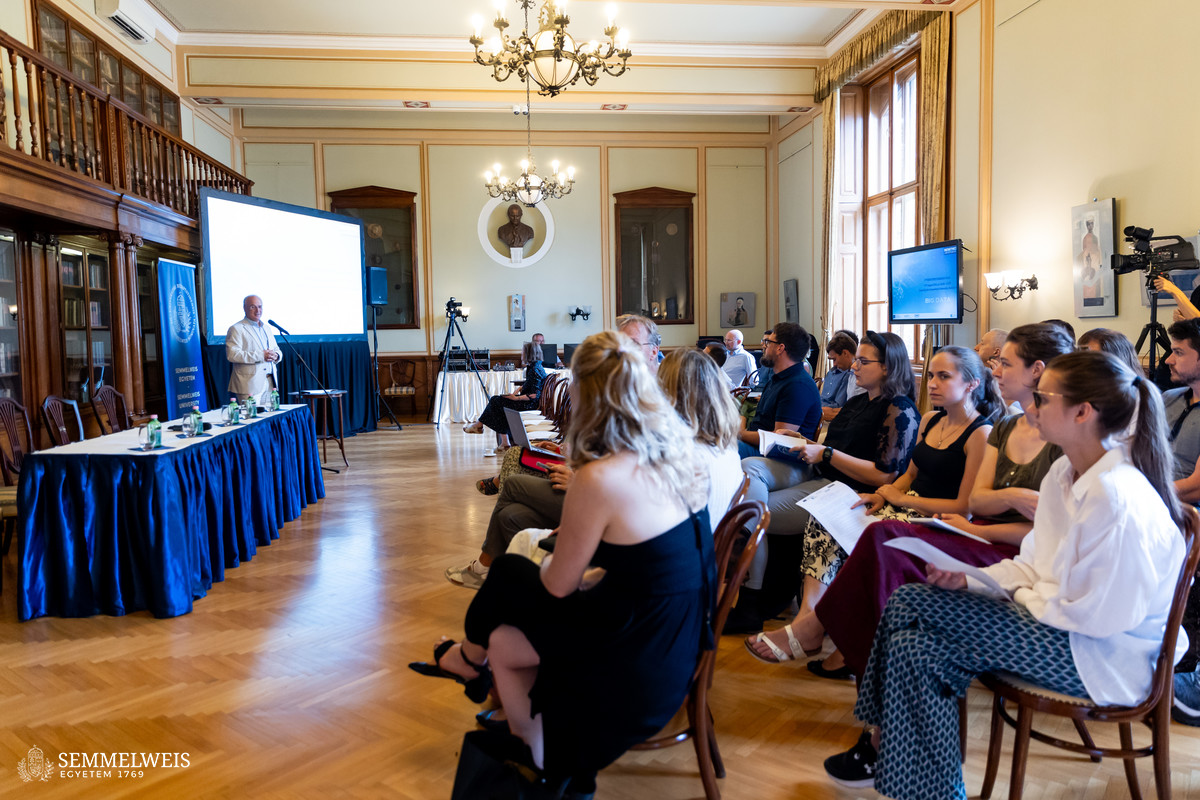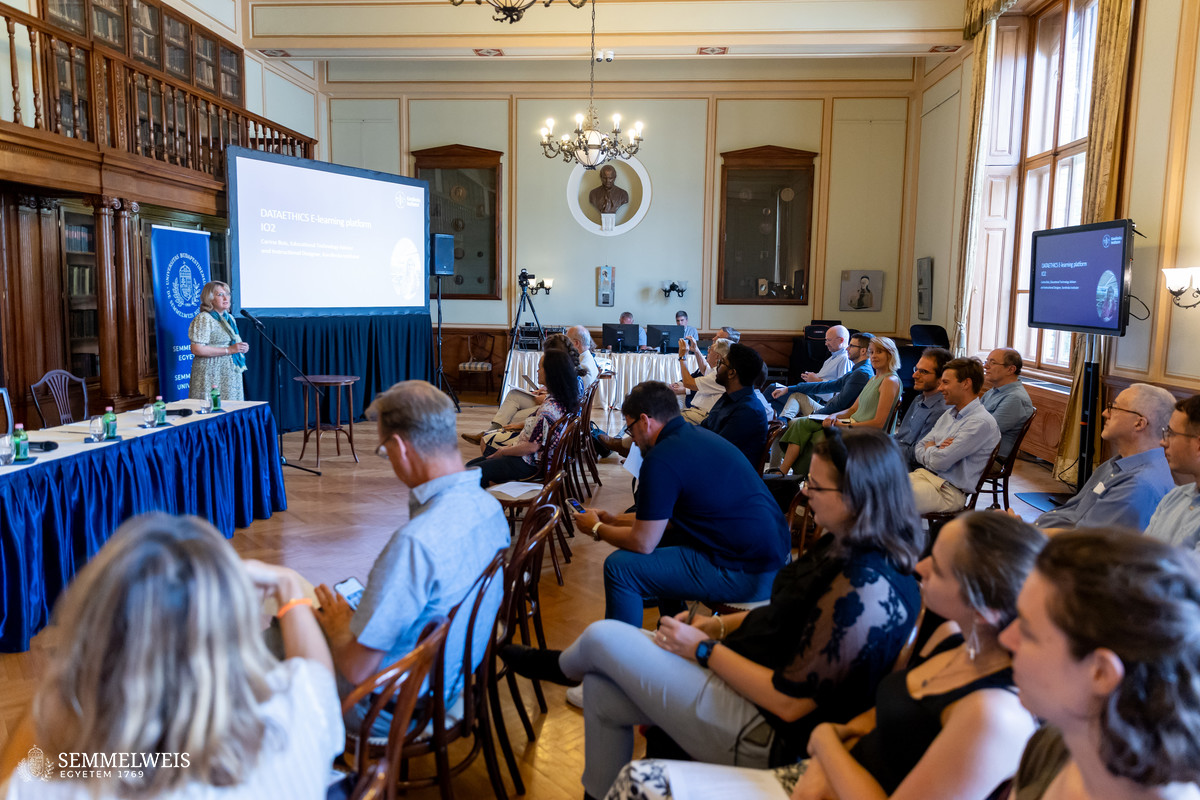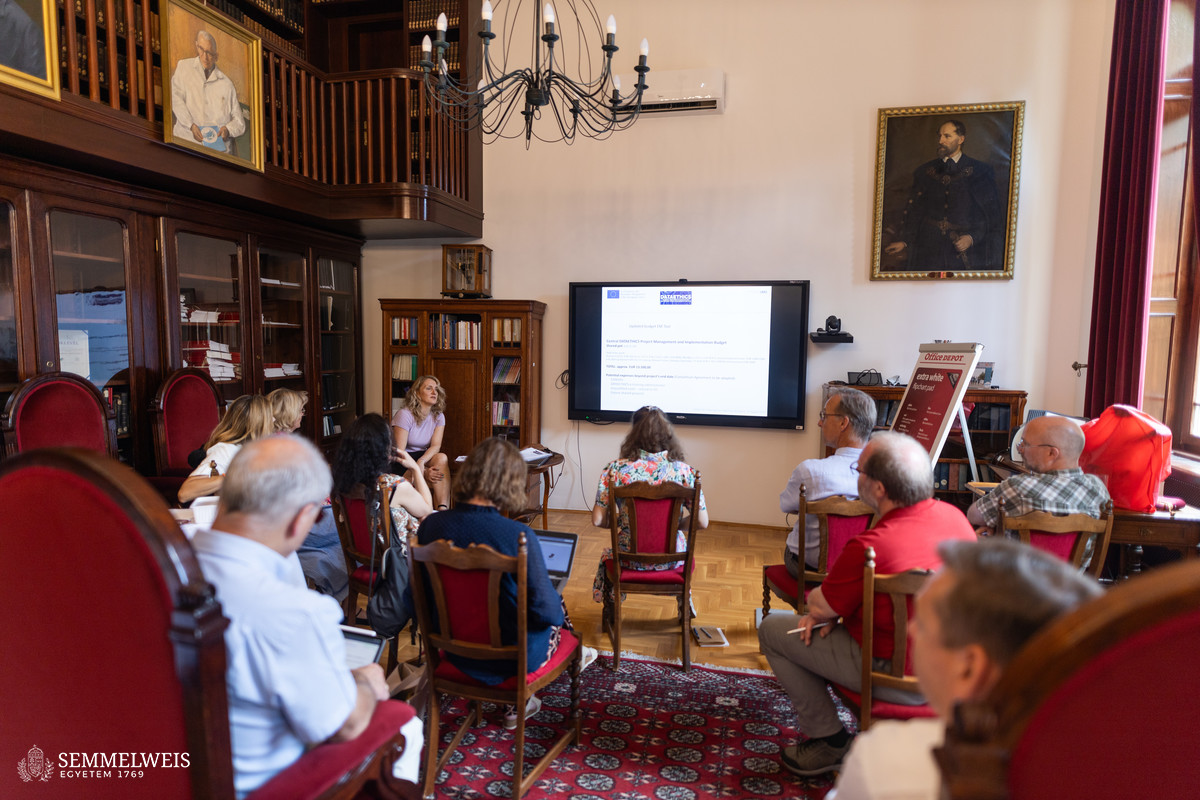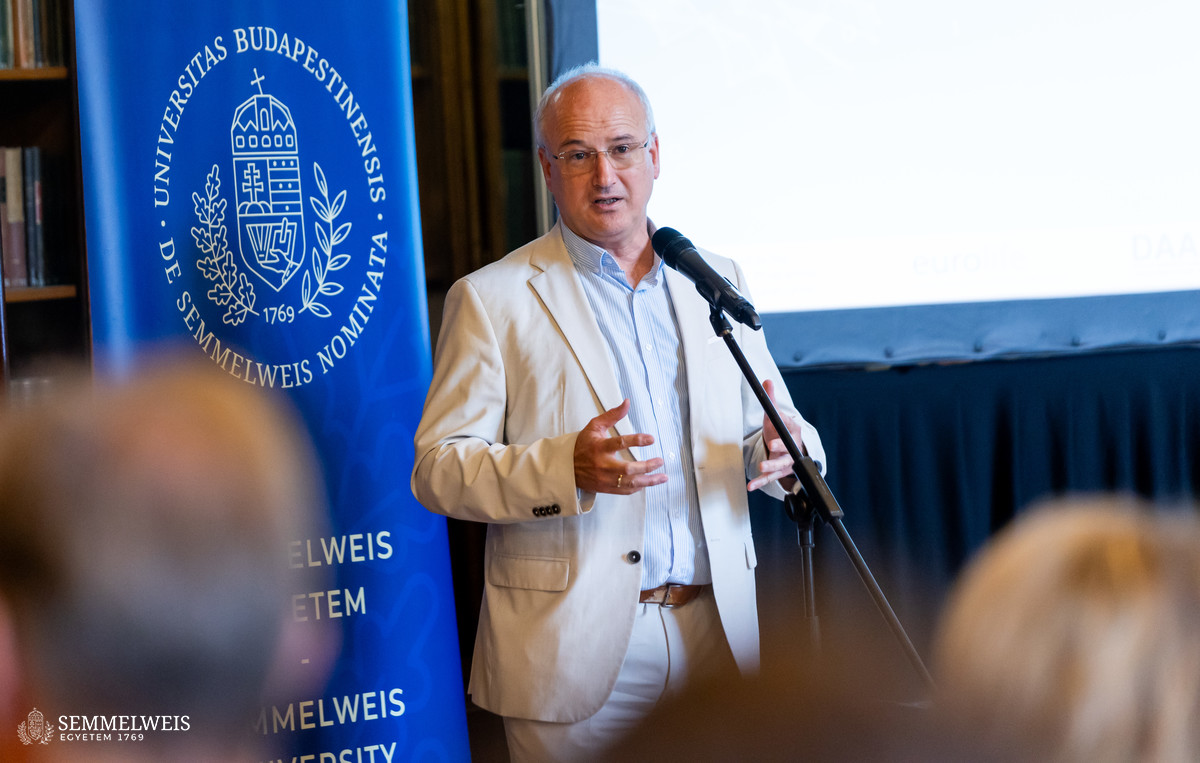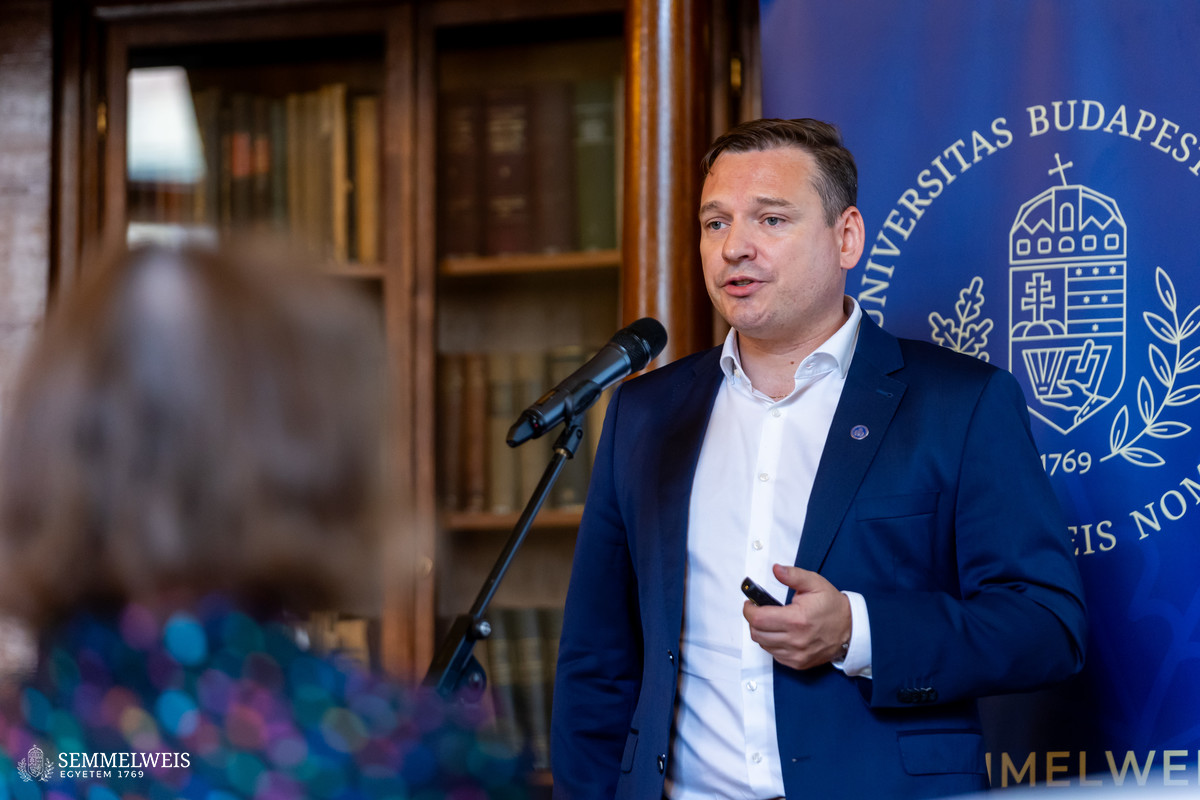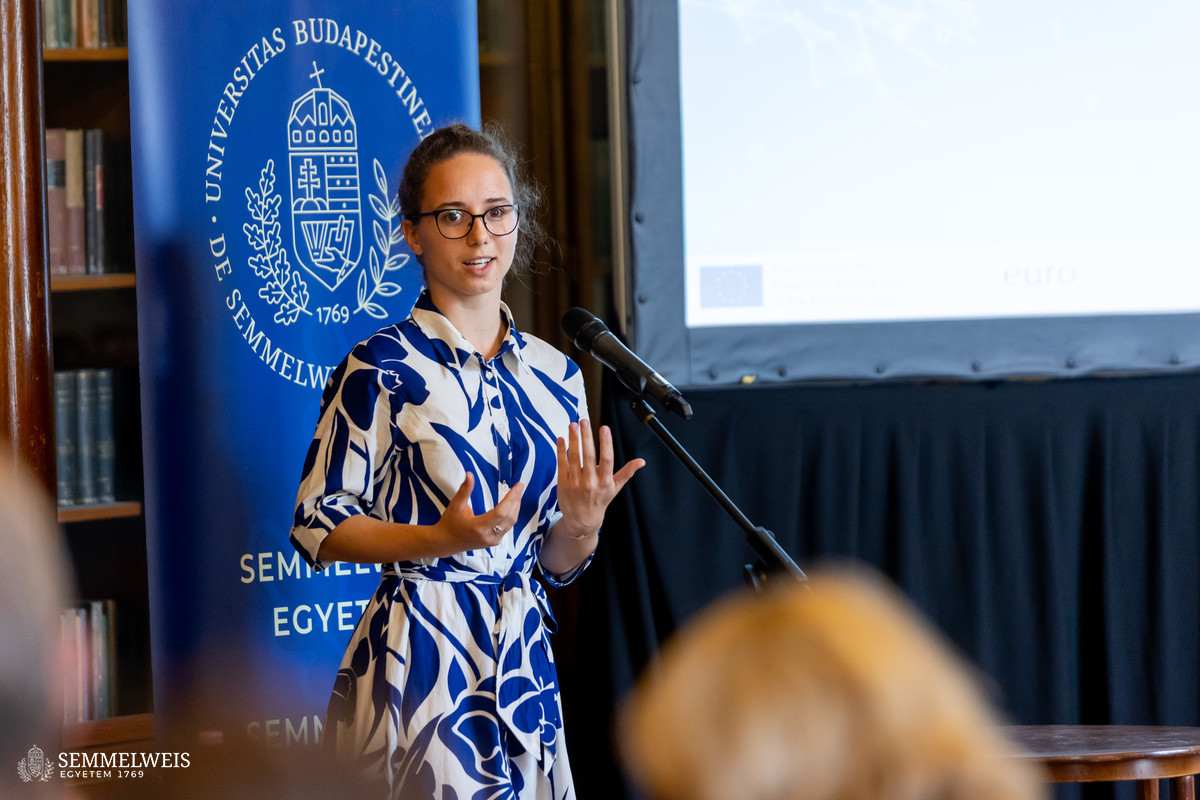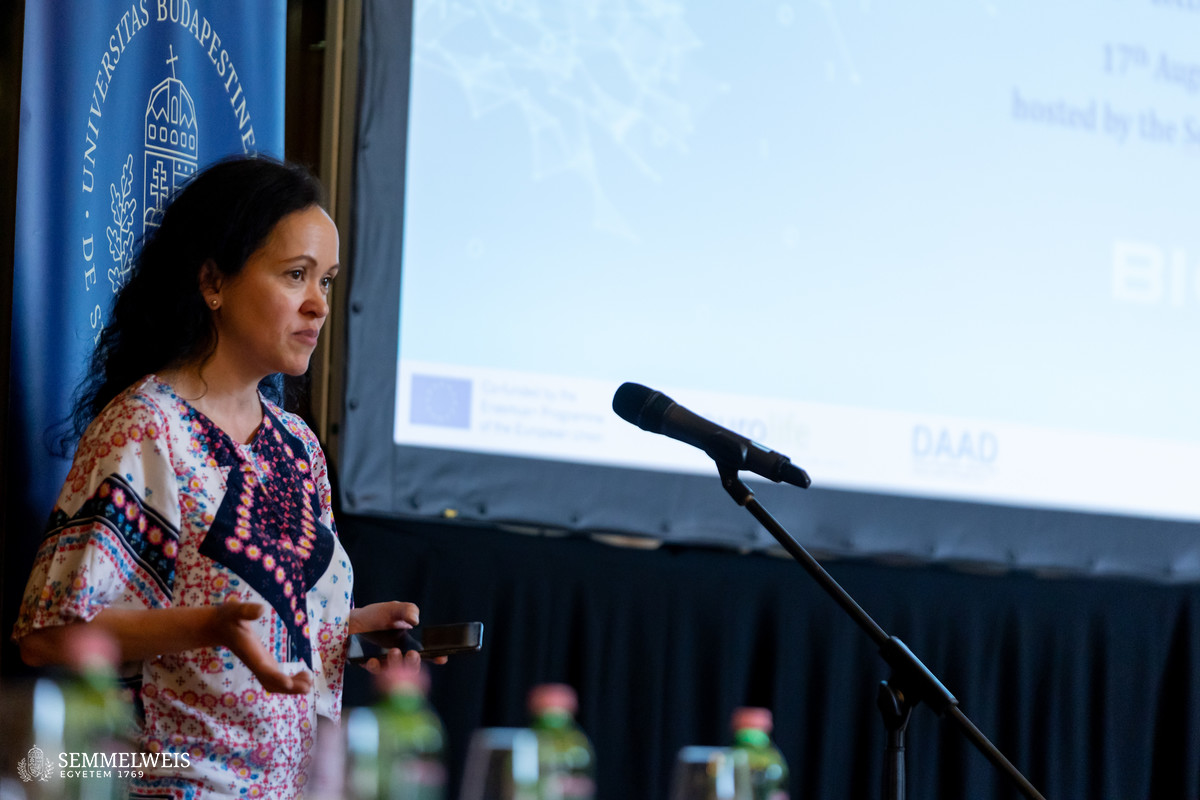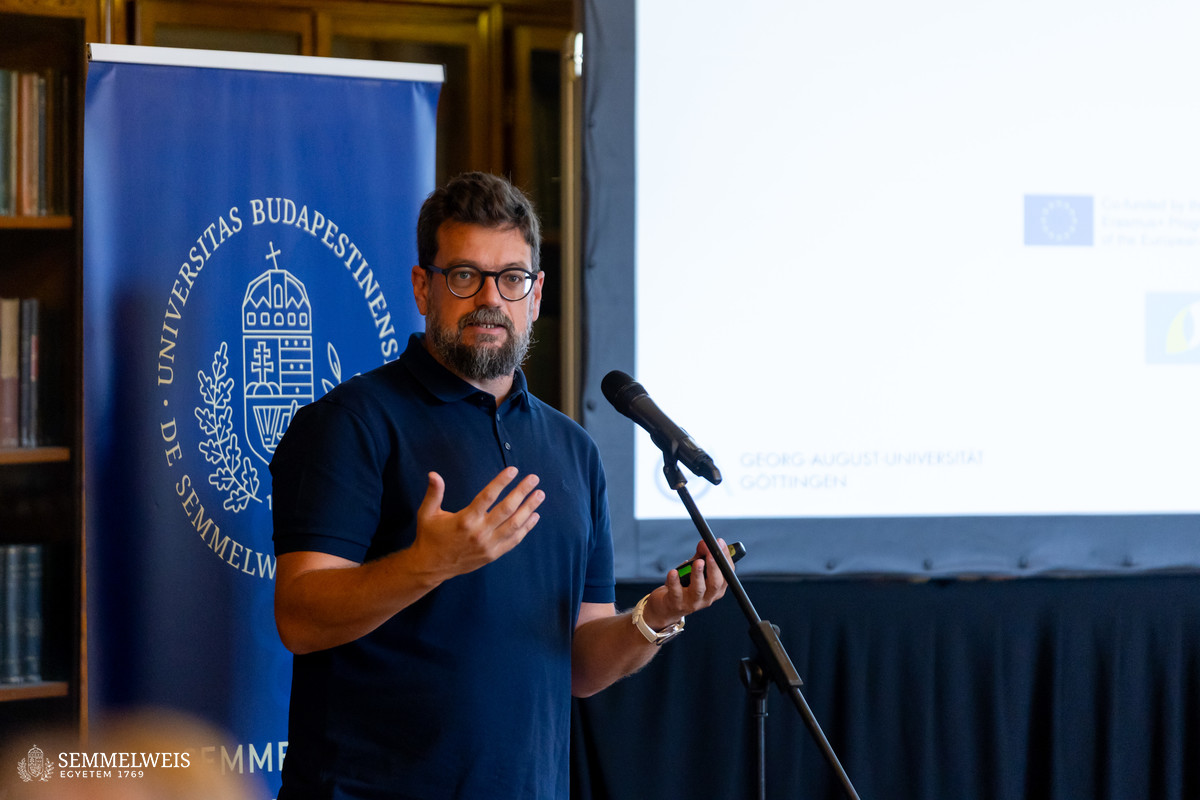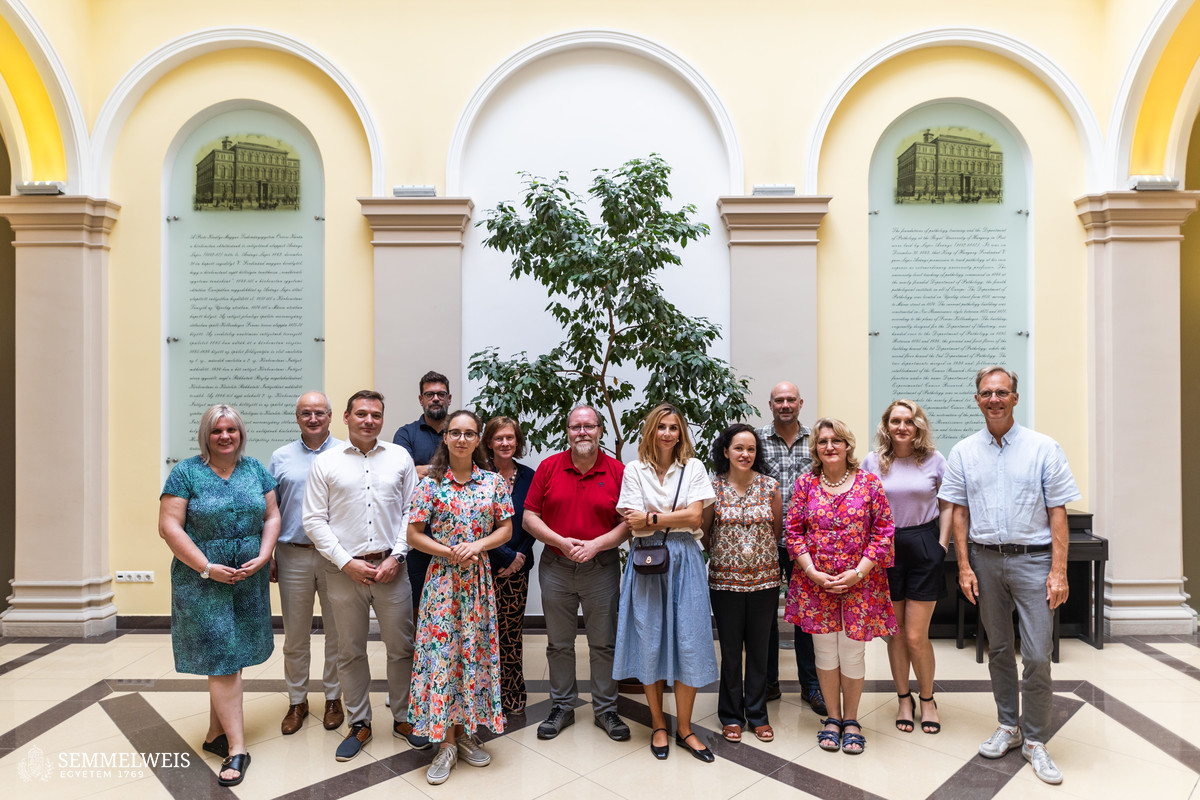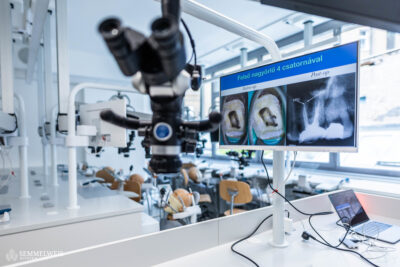The DATAETHICS program explored the ethical implications of biomedical big data (BBD), recognizing that the professional generation and handling of extensive body of complex data can only be safeguarded if it is facilitated from the initial stages, i.e. through the interdisciplinary and intercultural training of young academics and industry players.
Co-funded by the Erasmus+ Strategic Partnership project, the program has adopted an international, multicultural approach, incorporating digital technology and artificial intelligence to address the pressing issues of our time. The program is composed of summer and winter schools, e-learning courses, innovative training methods and open badge awards.
It’s no exaggeration how important the ethical aspects of large data sets are, justifying the possible vision that this data ethics concept could merge into a more structured way of education and training in the future,
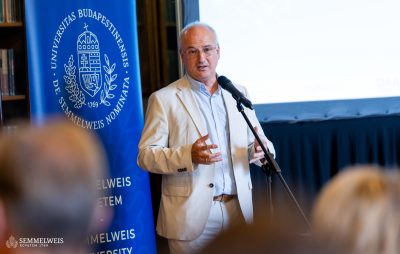 pointed out Dr. Miklós Kellermayer, Dean of the Faculty of General Medicine and member of the Eurolife Consortium Steering Committee, as the host of the closing conference.
pointed out Dr. Miklós Kellermayer, Dean of the Faculty of General Medicine and member of the Eurolife Consortium Steering Committee, as the host of the closing conference.
He added that at the time the concept of data ethics was born, artificial intelligence was not as widely available as today, however, he warned that the current development level of the technology still demands human supervision.
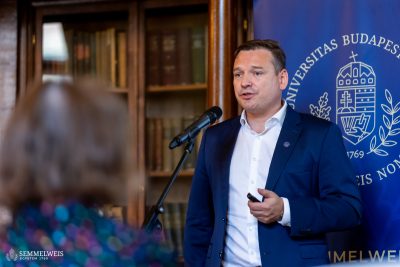 Dr. Csaba Bödör, Professor at the Department of Pathology and Experimental Cancer Research, member of the Eurolife Educational Alliance, summarized the intellectual products created within the framework of the program. One of the first steps of the project was a student survey, coordinated by Semmelweis University, in which 130 students were polled about their knowledge of biomedical data and its ethical aspects, as well as their questions and educational needs related to it. Nearly half of the respondents did not have a clear understanding of the scope of BBD. 91 percent were aware of the new ethical and legal challenges associated with the use of biomedical big data. 80 percent of the students at the seven participating institutions felt that the institutional curricula do not sufficiently cover the ethical aspects of the use of biomedical big data.
Dr. Csaba Bödör, Professor at the Department of Pathology and Experimental Cancer Research, member of the Eurolife Educational Alliance, summarized the intellectual products created within the framework of the program. One of the first steps of the project was a student survey, coordinated by Semmelweis University, in which 130 students were polled about their knowledge of biomedical data and its ethical aspects, as well as their questions and educational needs related to it. Nearly half of the respondents did not have a clear understanding of the scope of BBD. 91 percent were aware of the new ethical and legal challenges associated with the use of biomedical big data. 80 percent of the students at the seven participating institutions felt that the institutional curricula do not sufficiently cover the ethical aspects of the use of biomedical big data.
Subsequently, a group of participants faced ethical dilemmas associated with BBD, which were incorporated into the conclusions presented in the interactive module.
In the following section of the symposium, experts from the Karolinska Institutet, the University Medical Center Göttingen, the Medical University of Innsbruck and Trinity College Dublin presented the gradually accessible interactive e-learning platform, the “Dataethics Handbook” and the currently available learning content.
Those interested in the subject can already gain an insight into the work of the past years through free e-courses, as the online training modules are based on the curricula and experiences of the consortium’s summer and winter schools. Assistant Professor Dr. Orsolya Péter, Professor Dr. József Kovács and Associate Professor Dr. Gábor Attila Tóth, all on behalf of the Department of Behavioral Sciences of Semmelweis University, contributed to the educational content.
The four free courses currently available are recommended for undergraduate and postgraduate students, as well as for interested researchers, as the theoretical knowledge is made tangible through actual case studies:
- Ethical Considerations in Interpretation and Handling of Biomedical Big Data
- The Ethics of Artificial Intelligence in Biomedicine
- Big Data, Big Implications: Data Protection in Biomedicine
- Ethical and Regulatory Challenges in the Era of Open Science Data Sharing in Life Sciences & Health
In addition, an online student forum facilitates a common understanding and processing of the topics.
You can enroll for the courses here.
The Eurolife network is a consortium of nine prestigious European research and training universities of excellence in biomedicine and medicine, whose members are:
- Karolinska Institutet (Sweden)
- Leiden University Medical Center (the Netherlands)
- Medical University of Innsbruck (Austria)
- Semmelweis University
- Trinity College Dublin (Ireland)
- Universitat de Barcelona (Spain)
- University Medical Center Göttingen (Germany)
- University of Edinburgh (United Kingdom)
- University of Strassbourg (France)
Semmelweis University joined the network in 2017. Since its launch in 1999, Eurolife has evolved into a leading forum for cooperation in life sciences with its EU-funded projects, joint research & education and mobility initiatives.
Judit Szabados-Dőtsch
Photo: Bálint Barta, Attila Kovács — Semmelweis University
